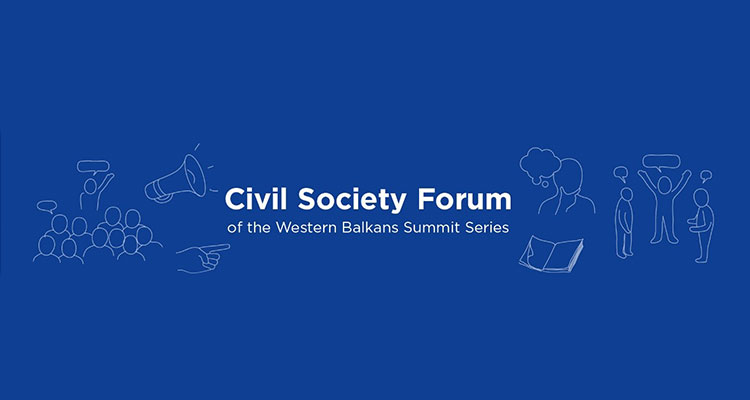The European Economic and Social Committee (EESC) held the 6th Western Balkans Civil Society Forum in Sarajevo on 10-11 July. Participants adopted a Final Declaration calling for increased media freedom, opening the doors of the Western Balkans to EU enlargement, the implementation of migration policies and increased employment opportunities, and working on women’s rights.
EESC President Georges Dassis opened the Forum by saying: “The goal that everybody should strive for is a lasting peace among countries that went through terrible times not so long ago, and EU accession is there to anchor peace in their relations”. He added: “European integration is not only a matter of political and economic integration and cooperation, but also one of contacts and dialogue among citizens.”
Andrej Zorko, President of the Western Balkans Follow-up Committee of the EESC, added: “The position of the European Economic and Social Committee has always been clear – the future of the countries of the Western Balkans should eventually be in the European Union, and organized civil society should play a prominent role in their EU accession process.”
Participants expressed hope that, despite the multitude of challenges EU is facing, the EU’s enlargement policy will remain one of EU’s priorities and will become more progressive and ambitious. They stressed that, in order to foster reconciliation and promote overall democratisation of the countries of the Western Balkans, it is essential that EU institutions and the governments of these countries increase their efforts in expanding the space for civil society.
The declaration also called upon the governments of the Western Balkans to promote social dialogue and to fully and regularly involve Economic and Social Councils when undertaking reforms and legislative changes.
On migration, participants commended the important role CSOs are playing in handling the refugee crises. They expressed concern on the impact of depopulation as a result of intra-regional migration and emigration towards the EU and called on governments to prioritize development of rural areas and creation of employment opportunities, especially for the young people.
The forum also expressed concerns about the negative developments in the region regarding the freedom of expression and media, defined by participants as a prerequisite for establishing solid democracies.
Another point of discussion were the common challenges that the EU and the Western Balkans are facing regarding the rights and empowerment of women – including widespread domestic violence, limited labour market opportunities, unequal access to participation in high-level politics, low levels of female entrepreneurship and inadequate balance between work and private life.
Background
Organised every two years since 2006 by the EESC’s Western Balkans Follow-up Committee, the Civil Society Forum provides an opportunity to exchange views on the current situation of civil society in the region, its needs and its future development. It brings together civil society organisations from Western Balkan countries, members of the EESC, representatives of national Economic and Social Councils and similar institutions, representatives of EU institutions and of governments of the region. The participants adopt conclusions addressed to national authorities and European institutions.




